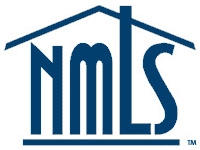Borrowers Catch A Break As FHA Changes Mortgage Application Rule for FHA and FHA loans in Jacksonville.
Applying for fha loans Jacksonville? Getting a low-down-payment FHA loan may be a little bit easier now. The Federal Housing Administration has stopped flagging applications from people with previous FHA loan rejections, removing a potential obstacle.
The flags, which applications used to carry for six months, were meant to help originators of FHA-insured mortgages assess the risk of lending to someone who had previously been denied. But the FHA found the alerts had minimal value, according to an agency news release, and were “often why other lenders will reject an applicant even when that applicant might otherwise qualify for a loan.”
The FHA said that the flags had also caused delays in loan processing, as marked applications would undergo another round of review.
Industry organizations, such as the Mortgage Bankers Association, have been calling for an end to the practice.
How the Change Will Help Borrowers
It’s not unusual for mortgage lenders to have different loan requirements. But some experts believe lenders may be inclined to pass up a flagged application without reviewing it.
“FHA’s requirement that lenders flag rejected loans definitely made it more difficult for prospective borrowers who had been rejected by one lender to be approved by another,” says Peter Idziak, an attorney at Polunsky Beitel Green, a firm specializing in residential mortgages.
The FHA rule change “should give applicants who were rejected by one lender the opportunity to have their application with a new lender evaluated without the bias of the past rejection,” Idziak adds.
Warning flags are being removed from pending FHA mortgage applications as of September 11. All future FHA rulebooks for single-family home loans will include this waiver.
FHA Loan Applicants Facing Tougher Hurdles
People seeking FHA mortgages—who often have less money to put down, weaker credit scores or both—are now rejected more often than in the past. In 2022, roughly 24% of loans were denied from the pool of originated and denied applications. That was up from 18% in 2021 and 2020.
One reason for the uptick in denials is that lenders are pulling back from originating all types of loans, including FHA mortgages, according to data from the Mortgage Bankers Association.
How To Qualify for an FHA Loan
FHA loans are backed by the U.S. government, which allows lenders to loosen their requirements. Typically, first-time home buyers who have lower down payments or weaker credit scores can qualify for an FHA loan when they wouldn’t qualify for a conventional loan. FHA loans are an essential tool in helping low- and medium-income home buyers access homeownership.
How much you can borrow depends on your credit score and down payment. If your score is 580 or higher, you can put down as little as 3.5%. For credit scores lower than 580, you must have a minimum of 10% down.
However, some lenders may have “credit overlays,” which is another way of saying they may impose their own requirements on top of FHA’s requirements. So, even though FHA requires only 3.5% down from certain borrowers, individual lenders may require a bigger down payment or a higher credit score.
While FHA loans have relatively low down payment requirements, borrowers who put less than 20% down will have to also pay mortgage insurance, also known as the mortgage insurance premium (MIP). FHA loan borrowers pay an upfront MIP of 1.75% and an annual MIP ranging from 0.45% to 1.05% of the loan amount. Mortgage insurance is required on all FHA loans for the life of the loan unless you make a minimum 10% down payment; in that case, the insurance requirement ends after 11 years.
Natalie CampisiForbes Advisor Staff.
Reviewed By Dawn Nici.
Updated: Sep 11, 2023, 4:38pm














